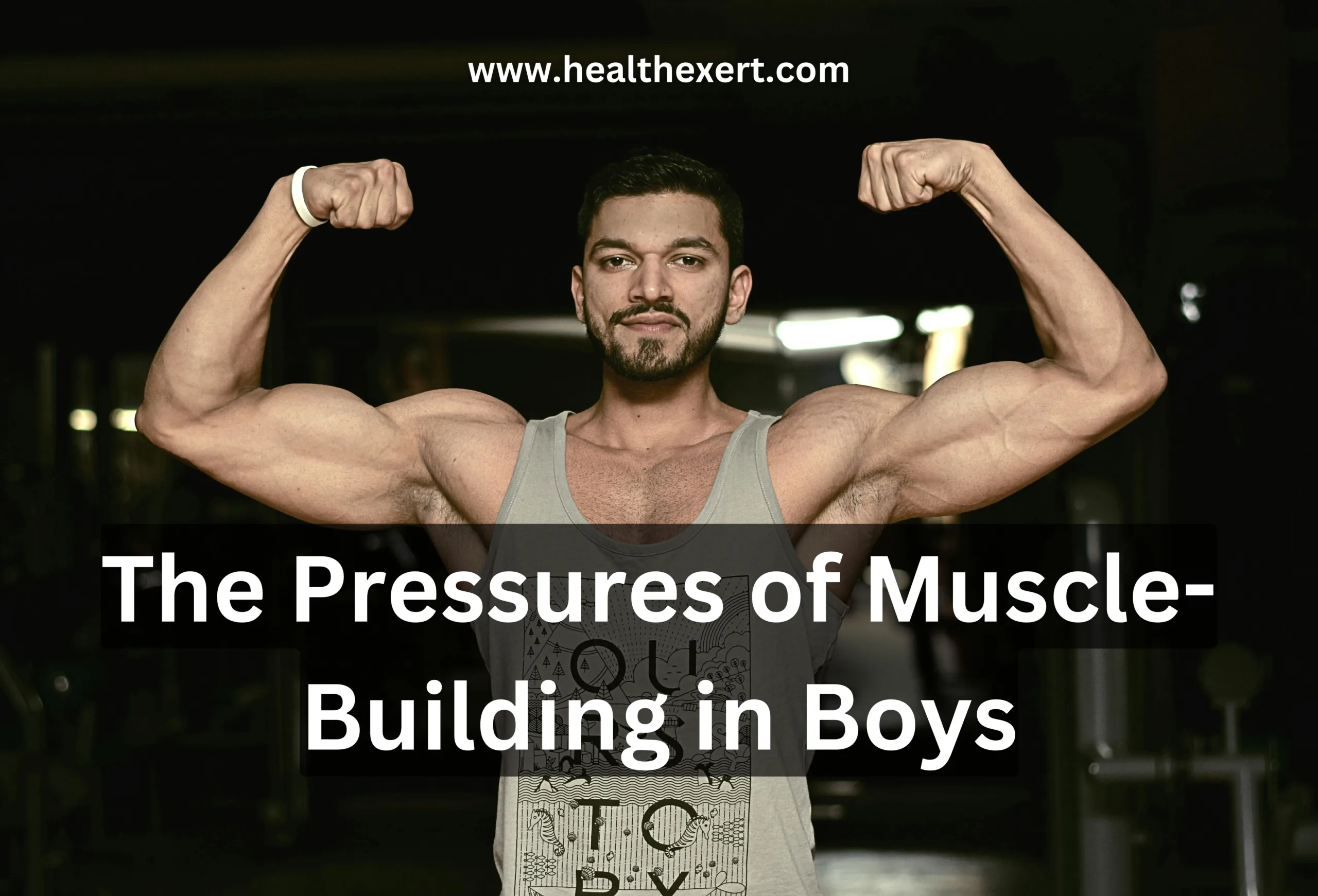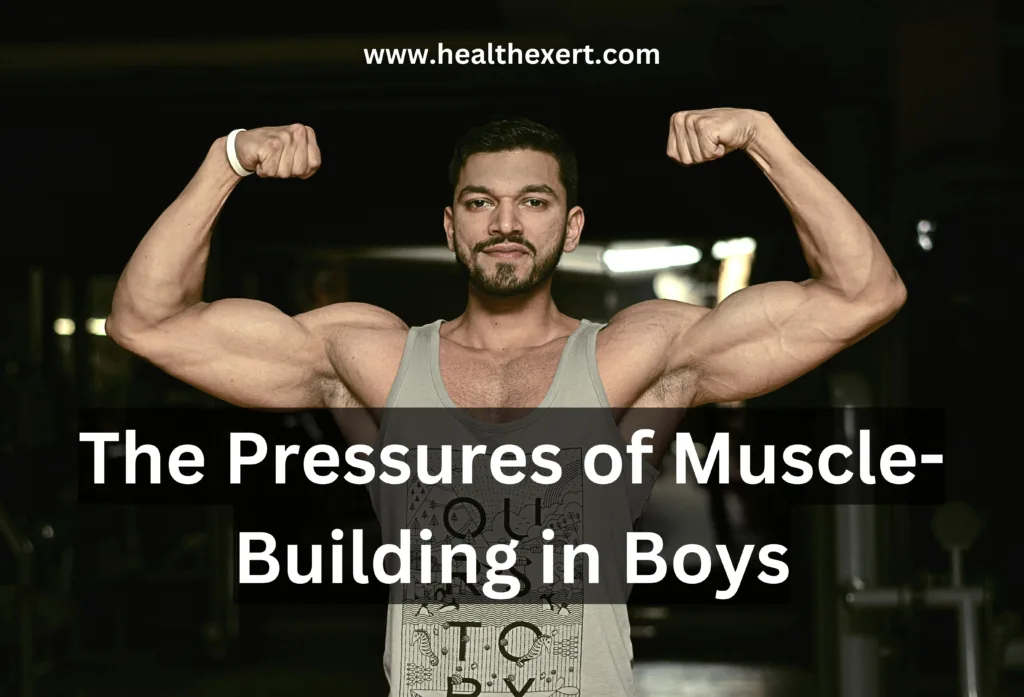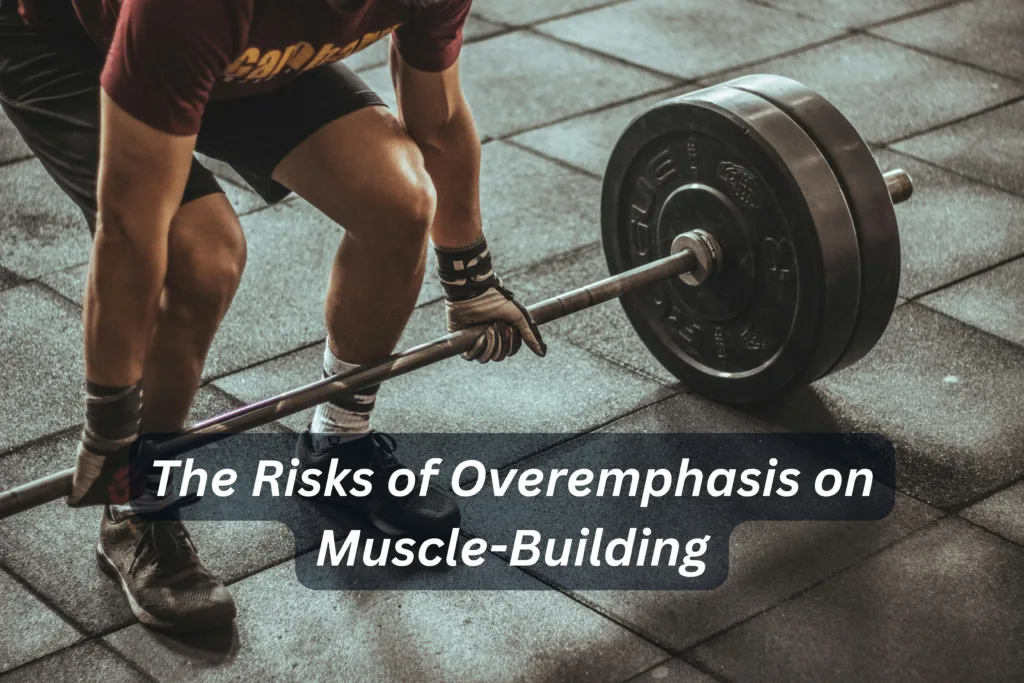In today’s world, the pressure for boys to achieve a muscular physique is more prevalent than ever. Influenced by media, peers, and sometimes even family expectations, many young boys feel compelled to engage in intense muscle-building activities. While some level of physical activity is beneficial for overall health, an obsession with muscle-building can have serious consequences on both physical and mental well-being.
This article delves into the pressures boys encounter regarding muscle-building, highlighting the effects on their well-being. It provides guidance on fostering a balanced approach to fitness and body image for healthier development.
Understanding the Obsession of Muscle-Building
Boys, especially teenagers, often equate muscularity with masculinity and attractiveness. This perception is reinforced by media portrayals of muscular men as strong, successful, and desirable. As a result, boys may engage in excessive exercise, strict diets, or even resort to supplements or steroids to achieve their desired physique.
The Risks of Overemphasis on Muscle-Building
Physical Health Concerns:
Overtraining and excessive exercise can lead to injuries, hormonal imbalances, and stunted growth, especially in adolescents whose bodies are still developing.
Mental Health Impacts:
The relentless pursuit of muscle-building can contribute to body dysmorphia, low self-esteem, and even eating disorders like anorexia nervosa or muscle dysmorphia (commonly known as “bigorexia“).
Social and Emotional Impact: Boys who feel inadequate due to their physical appearance may withdraw from social activities, struggle academically, or experience relationship difficulties.
How to Address the Issue
Promote a Healthy Body Image:
Encourage boys to appreciate their bodies for what they can do rather than how they look. Emphasize the importance of overall health and well-being over appearance.
Encourage Balanced Exercise: Encourage a variety of physical activities that promote strength, endurance, flexibility, and overall fitness. This can help prevent injuries and promote a more balanced approach to fitness.
Educate About Nutrition: Teach boys about the importance of a balanced diet for fueling their bodies and supporting muscle growth. Discourage the use of supplements or steroids without medical supervision.
Foster Open Communication: Create a safe space for boys to discuss their feelings and concerns about body image and self-esteem. Encourage them to seek help if they are struggling with their body image or mental health.
Lead by Example: Model a healthy attitude towards fitness and body image.
Avoid Criticizing Bodies: Encourage a positive attitude towards all bodies, including your own and others’. Refrain from making negative comments about body shapes, sizes, or appearances.
While the desire to build muscle is natural, it’s crucial to approach it in a balanced and healthy way. By promoting a positive body image, encouraging a variety of physical activities, and fostering open communication, we can help boys navigate the pressures of muscle-building and focus on developing into healthy, confident individuals.
The Role of Parents and Caregivers
Parents and caregivers play a crucial role in shaping boys’ attitudes towards body image and physical health. By being aware of the pressures boys face regarding muscle-building and promoting a healthy approach to fitness, they can help mitigate the negative impacts.
Encourage Body Positivity: Instead of focusing on idealized body types, emphasize the importance of being comfortable and confident in one’s own skin. Teach boys to appreciate the uniqueness of their bodies.
Provide Healthy Options: Ensure that nutritious meals and snacks are readily available at home. Encourage balanced eating habits that support overall health and well-being.
Support Diverse Interests: Encourage boys to explore a variety of interests and hobbies beyond just physical fitness. This can help broaden their sense of self-worth beyond their physical appearance.
Monitor Media Consumption: Be mindful of the media messages boys are exposed to, including social media, television, and magazines. Discuss unrealistic portrayals of masculinity and help them develop critical media literacy skills.
Seek Professional Help if Needed: If you notice signs of body image issues or unhealthy behaviors, don’t hesitate to seek help from a healthcare professional or mental health counselor. Early support can prevent more serious issues from arising.
Educational Institutions and Communities
Schools and communities also play a vital role in promoting healthy body image and fitness habits among boys. By creating supportive environments and offering educational resources, they can help boys develop a positive relationship with their bodies.
Physical Education Programs: Schools can provide a variety of physical activities that cater to different interests and abilities. Emphasize the importance of overall fitness and well-being rather than just muscle-building size or appearance.
Health Education: Incorporate lessons on body image, self-esteem, and healthy behaviors into the curriculum. Teach boys to recognize and challenge unrealistic beauty standards.
Promote Inclusivity: Create inclusive environments where boys of all body types feel accepted and valued. Celebrate diversity and discourage bullying or body shaming.
Community Support: Engage parents, teachers, and community leaders in discussions about body image and fitness. Work together to create initiatives that promote a healthy body image for boys.
In conclusion, while the pressure for boys to achieve a muscular physique is significant, it’s essential to promote a balanced approach to fitness and body image. By fostering open communication, providing healthy options, and promoting body positivity, we can help boys navigate the pressures of muscle-building and develop into healthy, confident individuals.





1 thought on “Breaking The Muscle-Building Pressure in Boys in 2025”